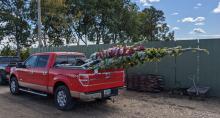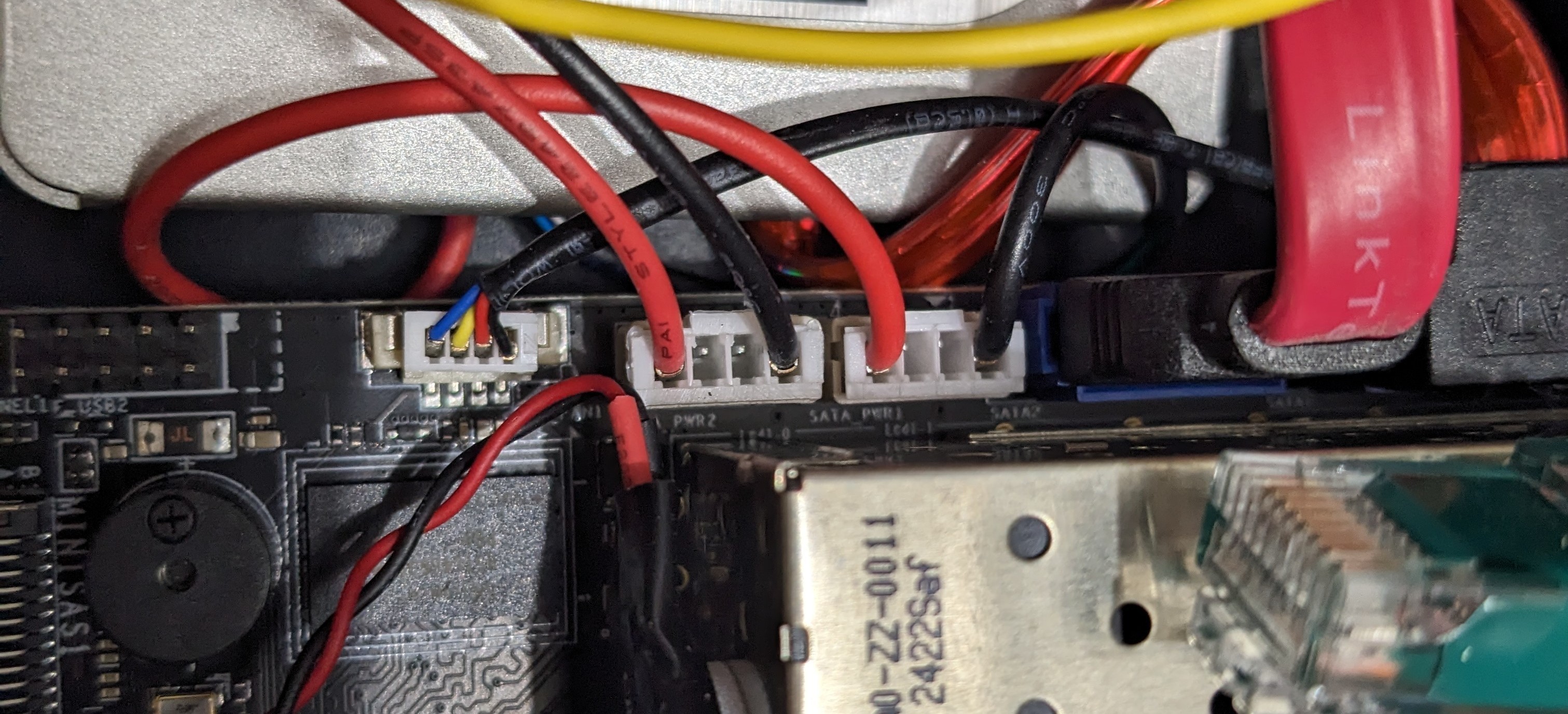Mandan house trees
For posterity, here is a description of the trees that we planted in September 2021. All were purchased from Prairie View. I'll say they were fine but I'll check out somewhere else next time. We went with fairly large trees and I think it was a worthwhile expense do to so. They were all extensively watered for the first fall and then two summers. I did almost no watering in 2024, which was helpfully a pretty wet year.
Boulevard Linden
We planted two of these in the boulevard at $327 each. These seem to be slow growers but I'm sure someday they will be mighty trees! Just now in 2024 we finally see significant growth on the top of the north tree (more sun on that one since the south tree is shaded--my theory). Info
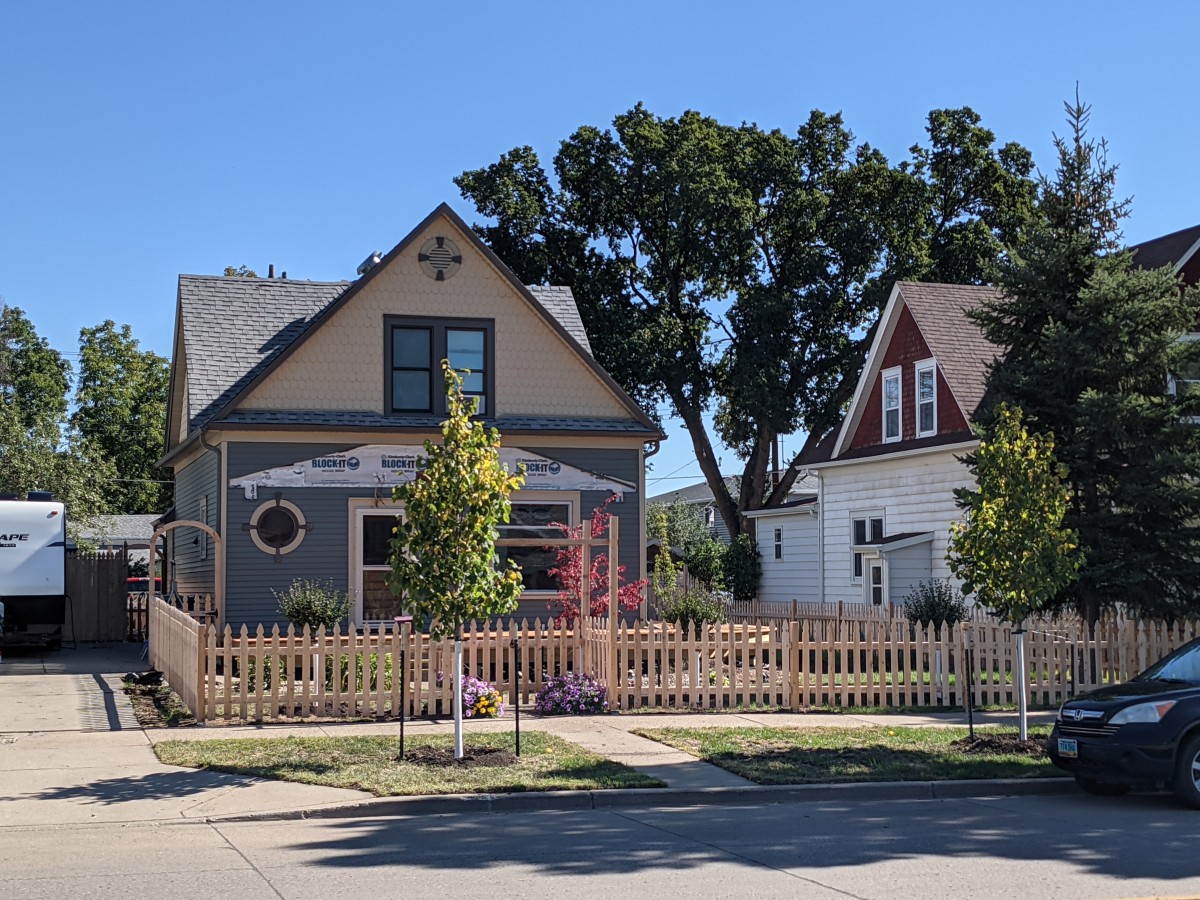
Medora Juniper
A sort of privacy screen is formed by these in the side yard. $96.50 each. These have been growing at a great pace and staying very shapely. Water/ice falling from the porch onto one has not really harmed it so the hardiness is impressive. Info
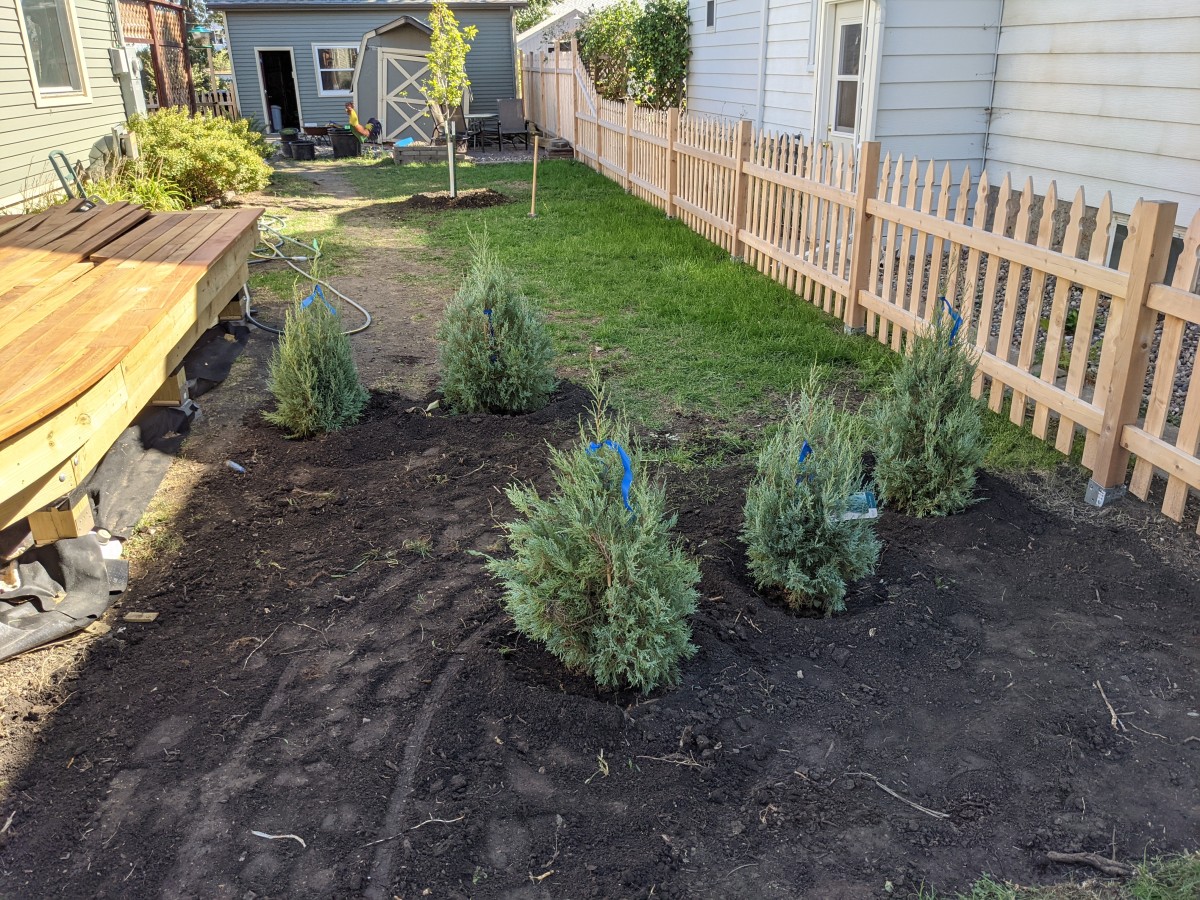
Dwarf Korean Lilac
Three of these serve as show-pieces at the very front of the yard. I have been able to keep them trimmed in nice ball shapes. Ideally these would be just big enough that they go just up to the sidewalk but not over the edge. They have several years before that will be a problem. These are grafted trees, $218 each. The flowers only seem to last two days. Info

Northern Empress Elm
This tree is in the middle of the front yard and has really started to nicely shade the porch area. It has grown rapidly and has an impressive trunk. Rated to grow 28 feet tall and 24 feet wide, it should not overwhelm the front yard. It grows a ton of downwards drooping garbage branches so I get lots of practice pruning. Apparently this was first available in 2021, the year we got it. $312 for the pleasure! Info
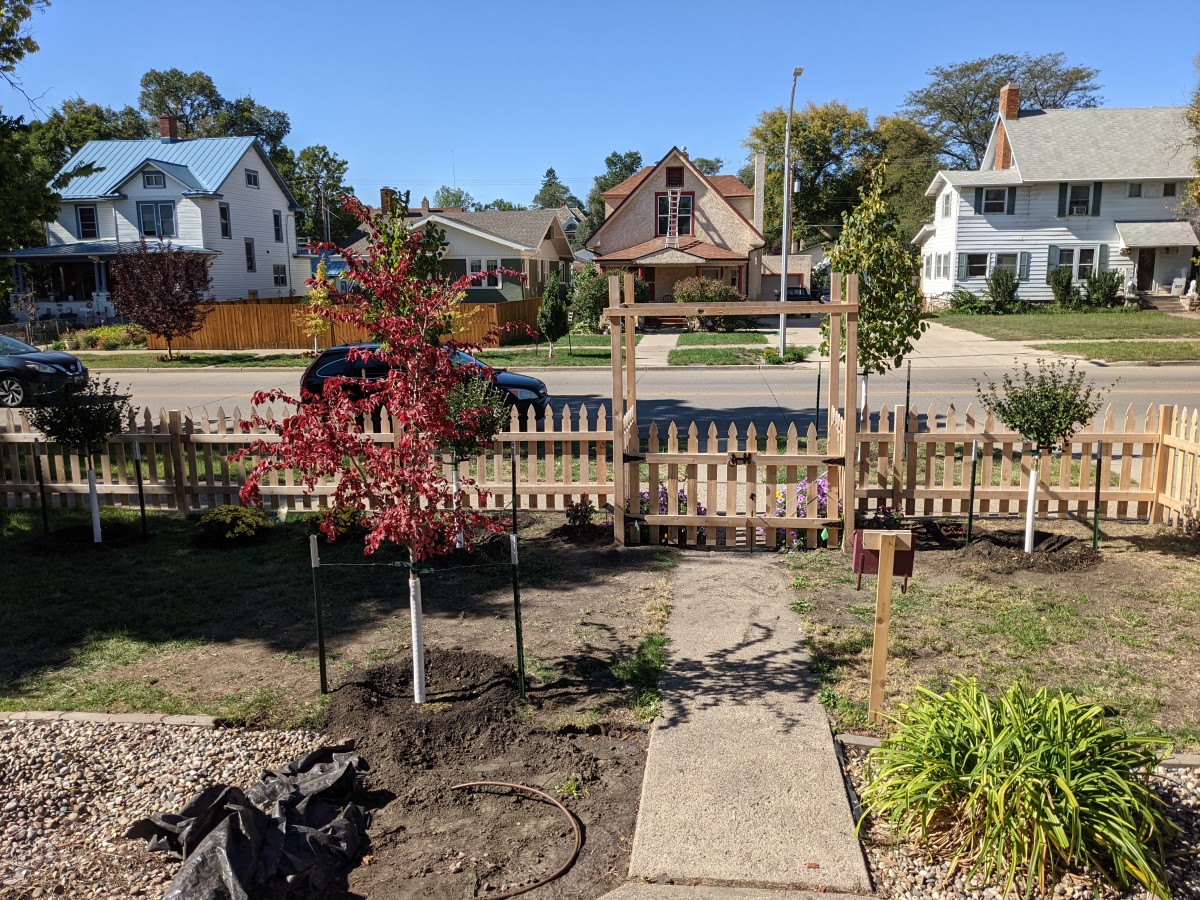
Hot Wings Tatarian Maple
I thought for sure that the leaves would be the hot-wings-colored part of this, but I see now that it is the seeds. That does make sense, since the seeds (samaras, aka helicopters) are like wings, and that is what they say turns red. $186 for this one. It had 6 main shoots going straight up in a bundle for the first two years, and they were very annoying in the way that they tangled with each other, but now they have matured out to do their own thing and the tree looks good. This one is in the side yard. I imagine that people think it is dumb to put a maple tree right between two kind of close houses and with overhead power lines nearby, but this tree should only grow to 18 feet in both height and width so should fit nicely as a mature tree. Info
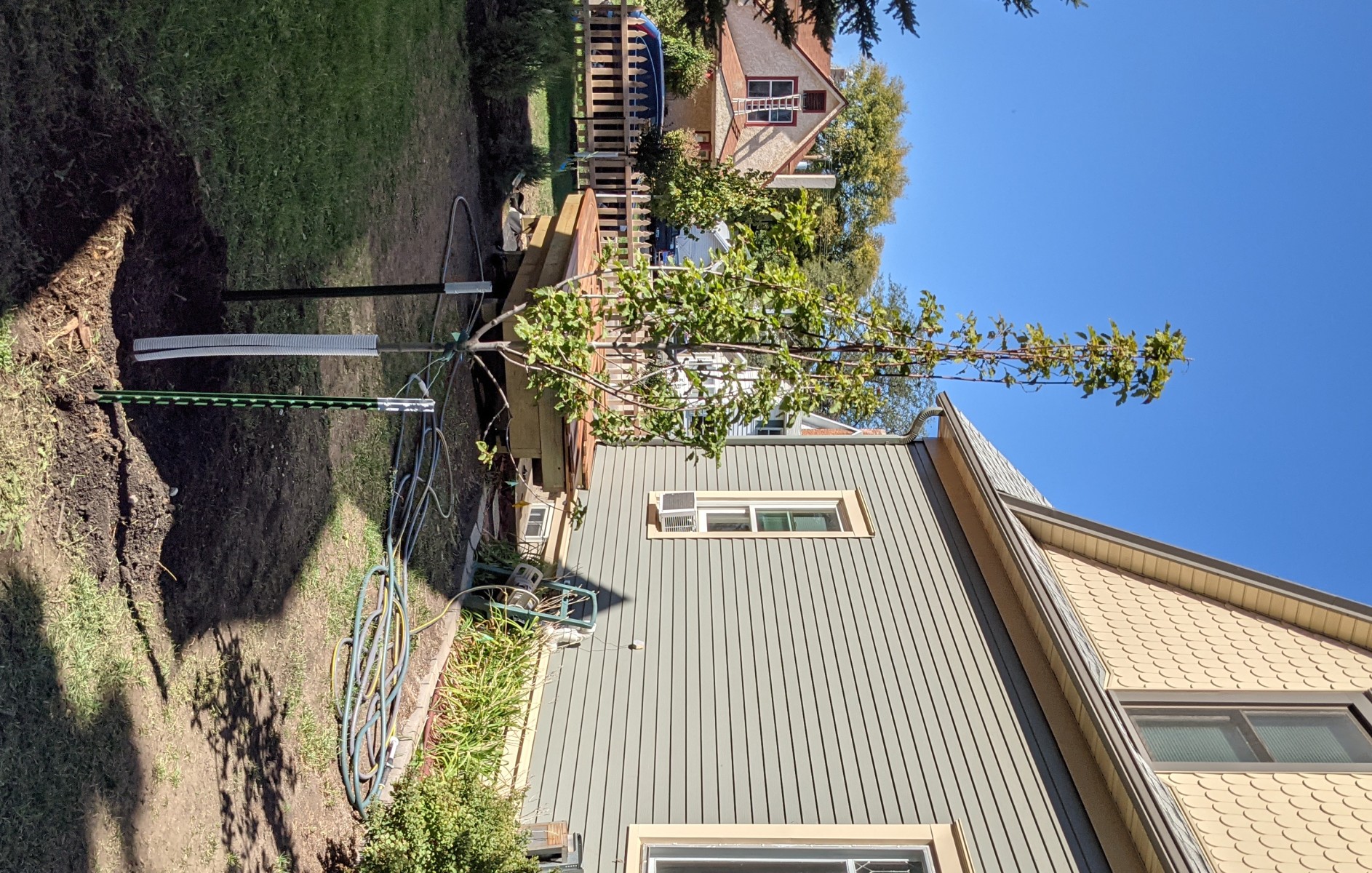
Prairie Expedition Elm
A big tree for the big back yard. Our neighbor Joyce has a nice big elm in her back yard and hopefully this one can fill in the skyline once that one has moved on. This grows at a ridiculous rate, with many new 8' shoots each year. They are too long and susceptible to wind damage so sometimes I cut the ends off. This one was kind of a disorganized wreck when we got it, with a dead and sideways leader, so who knows if it will turn out to be a decent tree. Maybe some good pruning tactics will become obvious as it continues to grow over the next few years. Dutch-elm-disease resistant. $280. Info
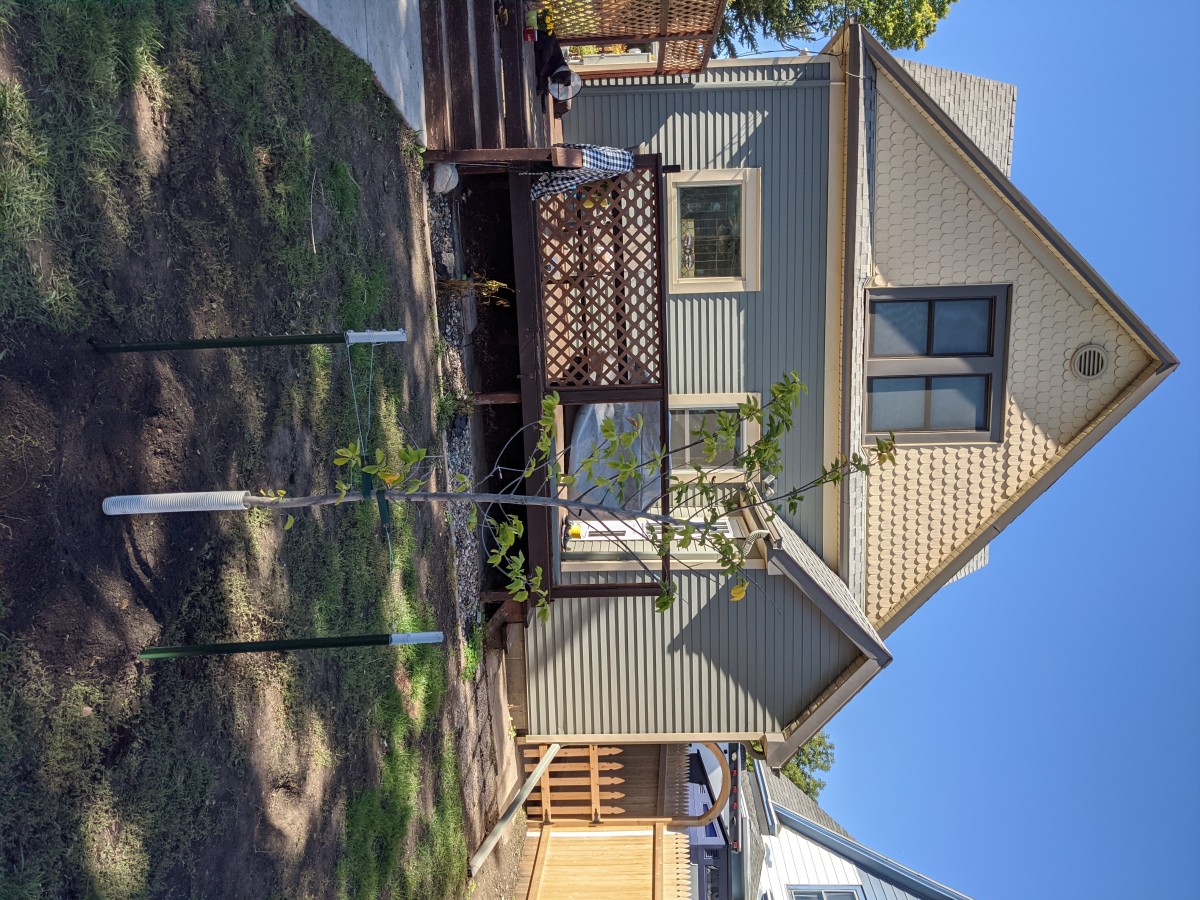
Shrubs/flowers
Tiny Tortuga Turtleheads on each side of the front gate. Mammoth Yellow Quill Daisies to the south of the gate. Fulda Glow Sedum by the turtleheads.
